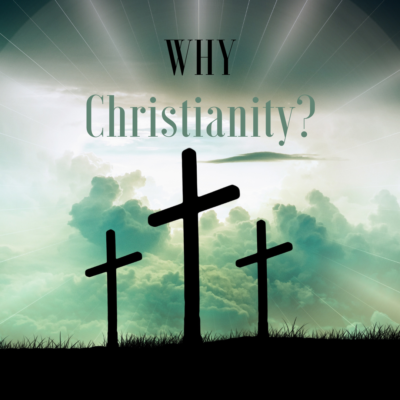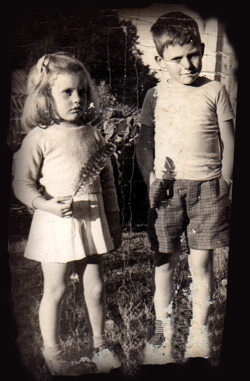
by Suellen | Faith, Successful Living
I want to tell you about George.
He’s my big brother. When we were children, growing up on the coast of south Georgia, I thought he was the greatest person that had ever lived. In my eyes, he knew everything, and he could do anything.
George was the one who tau ght me how to play jackstones and marbles. He taught me how to jump rope and how to play baseball in the street.
ght me how to play jackstones and marbles. He taught me how to jump rope and how to play baseball in the street.
Sure, he would stick me in the closet and dangle cockroaches in my face, and he would say things like, “Does your face hurt? Well it hurts me to look at it.”
But he didn’t mean any harm, he was just having fun.
He was my big brother.
Every now and then George would get into trouble because of his playfulness. Like the time he demonstrated his infatuation with Imogene by throwing pine cones at her. Her mother didn’t like that very much.
Then there were the times when the teachers would call and say that George was talking and laughing too much in school. He was disturbing the class.
But he was always having fun. That was George.
George would often get me to help him play pranks. One year Santa Clause brought him a movie projector for Christmas. One of the films which came with the projector had a slow motion spot in it. When we were showing the movies to friends, he would get me to say at the right time, “George, show it in slow motion.”
The friends thought that the projector was especially advanced. If they asked later to show something in slow motion, he would say, ” That part doesn’t look good in slow motion.”
As the years went by, George remained George. He did well in school, but his playful nature continued.
Then there were some surprises.
He surprised me when he came home from school in 9th grade and said that his choral director wanted him to sing a solo in the upcoming concert. I didn’t know that George could sing especially well. He then stood up at the end of the dinner table, and boomed out “Ole Man River,” astonishing all of us.
He had a beautiful voice! What a surprise!
Another surprise came when the senior-in-high-school George came home one night, his eyes shining from tears, to announce that God had called him to preach. We had been attending some revival meetings, and he had felt God speaking to him. He then had taken it upon himself to visit the evangelist at his motel and solicit his prayers. My parents, my younger sister, Ruthie, and I all surrounded George, hugging him and congratulating him.
All of us cried, because this was a big moment.
Soon after, George was accepted at Emory University, and received a ministerial scholarship. Before he left for school, our pastor asked George to preach one night at church. His sermon was very short, but profound. He preached on “mountain-moving faith,” from Mark 11:23-24. This was years before we had heard of Kenneth Hagin. I never had heard a sermon quite like that.
He was truly full of faith!
Back in those days, we didn’t know about spiritual warfare. We just took what came our way, and trusted in God, so we were blind-sided by what happened to George at Emory. George’s behavior became very erratic.
He decided that he wasn’t called after all, and started seeking other careers. First he decided that he was going to be a geologist, then an attorney and enter politics. (He even had some friends who were going to back him). He finally left Emory altogether.
George seemed to stabilize the next year at a junior college, and then he entered Georgia Tech.
My brother was 24 years old, and studying aeronautical engineering at Tech, when tragedy struck. He started having blind spots in his eyes and lack of muscle control. The diagnosis came of a debilitating disease, and within 6 months, George could no longer walk. He had the best doctors from Emory University, but little could be done for him.
The next 13 years he spent with my parents, his health continually degrading until he died at the age of 37.
I’m not one for sob stories, and I have never written about this. In fact, I’ve seldom even talked about it. But I think that there are some things I needed to share.
Do I think that God’s will was for George to be sick? Absolutely not!
But even when God’s perfect will is not being done, He brings good out of the sorrow.
First, my parents throughout those 13 years showed incredibly unwavering devotion to their son. Their home was not one of gloom, but of laughter and joy. But they sacrificed totally for George’s welfare during that time.
I have heard many people since say that the demonstration of Christian love shown by my parents caused them to turn to Jesus. They too wanted that kind of character, which could only come from Christian love.
Secondly, God’s work will go on with or without individuals. Two years after George died, I came to the Lord in a new and powerful way, receiving the baptism in the Holy Spirit and a new understanding of God’s work on the earth. A few years later, God called my husband and me into the ministry.
This may sound strange to some, but I truly believe that God passed the torch of George’s call to us. There was a work to be done, and He wants us to fulfill it.
Thirdly, the soul-searching – and truth-seeking – I did after George’s death, made me more determined than ever to take all the wraps off of the Gospel and press toward the greatest manifestation possible of God’s love and power in the earth. So many times when someone encounters a disappointment in their personal life, they are tempted to build a doctrine around it. (i.e.George didn’t get healed, so healing isn’t for today). But I am determined not to go that route.
I know where George is. He is in Heaven, in that cloud of witnesses spoken of in Hebrews 12:1. And if he could talk to me today, he would say, “Go for it! Run that race!”
I am determined not to let my life on earth be stopped in its tracks by hurts of the past. I have my own race to run, and I intend to do it.
After all, our time on earth is like a point at the beginning of a ray which extends forever. (You know, “to infinity and beyond”). The time here is short, and I want to make the most of it. I will see George again, along with my parents. (I hope there aren’t any cockroaches in Heaven).
In the meantime, I will run the race set before me.
Maybe you have had some disappointments. If so, I want to encourage you not to let that stop you from the life God intends for you.
Our God is a remarkable God. He can and will heal every hurt in a way that seems impossible, and He will let you learn some lessons even from the pain. Those lessons will allow you to take the reality of His love to others in a way that you never thought you could.
I’m striving for the higher call of Christ.
How about you? I know that you are too.
Let’s Keep on Soaring!
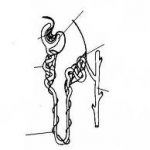
by Suellen | The Church Awakening
 So what is a nephron? A kidney cell. Strange, huh? What kind of spiritual lessons could we learn from the kidney cell? The answer: lots.
So what is a nephron? A kidney cell. Strange, huh? What kind of spiritual lessons could we learn from the kidney cell? The answer: lots.
I have found – as I’m sure that you have- that God teaches us by what we already know. In other words, if we are farmers, he’ll teach us lessons using the soil, the seed, planting,etc. If we are fishermen, he’ll use that imagery to show us other important concepts. O.K., so why the nephron?
A few years ago, I was a pharmaceutical sales representative in the Atlanta area. Part of my training was a “crash course” in pharmacology presented by the Medical College of Philadelphia, and since one of our drugs was a diuretic, I had a “crash course” in the kidney and its function. I was absolutely amazed with this important organ.
Years later, after I had left the job, and my husband and I were preparing for ministry, I had a very unusual day with the Lord. He reminded me of the nephron, the kidney cell, and He began to speak to me all day relating the concepts with His church.
The kidney is made up of very specialized cells called nephrons. Each kidney has between 800,000 and 1.5 million of these cells, which are so small that they cannot be seen with the naked eye. If you go to Wikipedia, you can learn more about these, but I want to concentrate here on the spiritual concepts.
The kidney has many functions which are life and death matters for our bodies. Every ounce of blood in our bodies, goes through the kidney every day to be cleansed and regulated. Waste products are removed, and electrolytes are balanced so that our other organs can function properly.
I had always thought of the kidney as functioning as a whole. I had thought that the organ worked like a muscle, to perform all of its functions. But no. That’s not the case. All of the functions which are done by the kidney are done on the cellular level. What do I mean? I mean that each nephron, so small that we cannot see it, removes waste, regulates, sodium, potassium, and other ions, regulates blood pressure, etc. In fact, as blood passes through the nephron, certain places on the cell perform each of the tasks. Everything is very specialized.
So what are the lessons? As a body of Christ, we think of all of our work as occurring by the whole. We think sometimes that while we are in church we are accomplishing all that God wants. But this is not the case. The true work of the church is accomplished by each cell – each person – as they are performing their function in the world. They may be so small that no one even sees them, just as the nephron, but their work is important. In fact, the very life of the body depends on the work of all of these no-name, faceless members of His body.
So often, we gather and have wonderful meetings and feel so revved up and energized for the Lord. But if we are truly the Body of Christ, we need to go out and perform our function. That’s really the only way anything gets done. God is a one-on-one God. Whether we are going to change our churches or change our communities, everything is personal. Even when we talk about “taking mountains,” the culture only gets changed by individuals turning to the Lord and changing their mindsets.
But there’s more. Even though the work of the kidney – or the ministry- is done on a cellular level, by each one doing his part, if you cut some of the cells away from the kidney, they will die. Even though they do the work themselves, they depend on the blood flow from the kidney as a whole to survive. They don’t work or even survive alone.
So is the Body of Christ. Though the work of the ministry is done by each individual doing his part, that individual needs the corporate anointing, as the church comes together, to fulfill his call. The anointing, the teaching, the sharing,and the “iron sharpening iron” that goes on as the church meets as a whole, are absolutely essential for each member to thrive in his calling.
We need each other, but each one is important. I believe that in this time in history, we are going to see individuals rising to their place like never before. We will come together; then we will go out. We will be refreshed and energized by the anointing and by the words; then we will go out into the world, carrying the torch of awakening. We know our significance – and we see the significance of those around us. We are all important.
After all, together, we make up the Body of Christ, and we have an important work to do for Him.
Let’s do it!
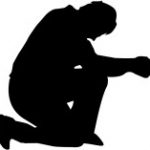
by Suellen | The Church Awakening
 How do you define a Christian? We all have our preconceived ideas. Of course they have to believe in Jesus Christ and receive Him as their Lord and Savior. That goes every time. But what about the rest?
How do you define a Christian? We all have our preconceived ideas. Of course they have to believe in Jesus Christ and receive Him as their Lord and Savior. That goes every time. But what about the rest?
In our society we have images which pop into our heads. We might imagine a man in a suit and tie and a woman in her heels. (Or if you run in the circles I do, you imagine a man not in a suit and tie, and a woman in pants or jeans). In either case, we think of dedicated church goers, with Bibles in hand, leading in prayer, having solid families. Usually they are leaders in the community.
But is that all? Is everyone that way? What about Mark?
Mark is a man who is now in his seventies and had never been in a church until about four years ago, when he came and prayed to receive Jesus. His wife passed away much earlier, and he was very lonely. He lives in a small mobile home at the edge of the town with his grandson, whom he raised. (Now the young man is in his mid twenties, but he doesn’t work and counts on his grandfather for support).
Mark is a quiet man, but every now and then he’ll tell a story which gives us a glimpse of his life.There is a reason that he never learned to read. When he was in the second grade, his father took him out of school so that he could help with the farm chores. (They were sharecroppers). He worked hard, long hours on the farm. But that’s not all that he did.
His grandfather was a moonshiner. He had a still back in the woods, and when the old man had an order, he would have Mark travel by foot to deliver the brew. It was risky, so the young boy learned how to look out for the “law.” On occasion he might have to duck into the edge of the woods, so as not to be seen. This grandfather was a hard man. If the young lad didn’t make it back in time for dinner, he wouldn’t get his food. Food was served twice a day, and anyone not around for the meal would have to wait until the next one.
Mark later got married, had children, and raised a family. Over the years, his farming and moonshining gave way to factory work. He worked at a local plant, running machines, and doing janitorial work. His attendance record was almost perfect. One of his greatest possessions was a jacket which he earned as “Employee Of The Year.”
Mark told me that while his wife was alive they would “fuss a lot.” He feels bad about that. He says that “he didn’t always do what he should have done.”He’s glad that he can pray and that Jesus has forgiven him.
He has been retired a few years, but Mark still does odd jobs. And he walks. He walks several miles a day – sometimes to the store, to a working assignment, and sometimes to church. He loves to work and he loves to walk. It makes him feel better.
Mark doesn’t bring a Bible to church, since he can’t read it. But every Sunday, for the last few years, he has sat on the front row on the far right of the church. And every Sunday, he has listened attentively as sermons were preached or testimonies given. His heart is tender, as he kneels and prays at the altar. He wants to “keep things right with God.”
We need to broaden our perspective. We need to realize that out there – in the masses of people who throng by every day, there are other Marks. They might not look like they would be interested in Jesus. And they might not act like it. Yet within their hearts is a desire to connect with their Maker and to connect with the truth. They want to know what the Bible says, and they want to learn how to pray. They might be outside of the box we expect people to be in, but they are not outside of the box in Jesus’s eyes.
I don’t know about you, but I want to look for more of the Marks. I am asking God to open my eyes and ears to see and hear what he wants to tell me so that I can reach others who are seeking the truth. I’ll try not to judge by what my natural eyes see, but I will try to judge by my spiritual eyes.
Dear Lord, help me to do this. I know how special these little ones are to you. Help me to do this.
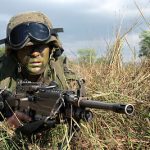
by Suellen | Successful Living
 A few years ago, I watched an interview with Colonel Ted Martin of the 4th Infantry Division. His soldiers had been waiting for weeks off the coast of Turkey while war raged in Iraq. They were waiting for permission from the Turkish government to enter through their land.
A few years ago, I watched an interview with Colonel Ted Martin of the 4th Infantry Division. His soldiers had been waiting for weeks off the coast of Turkey while war raged in Iraq. They were waiting for permission from the Turkish government to enter through their land.
“Are your troops ready?” Geraldo Rivera asked. “Or did they get rusty on the ships?”
“No sir. We used the time to train.”
“Are your tanks ready for the desert?”
“Yes sir. We spent a month in the desert. We traveled five hundred miles in the sand to prepare ourselves for what we would face. We are the best trained, the best equipped, and most disciplined fighting force in the world.”
The last decade or so has really made me proud – and appreciative of the soldiers who trained, disciplined themselves, and performed so valiantly in service of our country.
But there are other men and women who make me proud. They are the warriors who stand for God – for the right thing, no matter what. They have shown that they are warriors by remaining true to:
- Their identity as a Christian – even when it’s not the popular thing to do.
- Their personal integrity. They are determined to stay true to their principles
- Their family.
- Endurance through pain. Nothing will stop these brave people.
- Their friends.
- Their strong faith. They know their God and they know He will continue to be with them.
I am so thankful for these people. They are true warriors for God, and for His purposes.
Are you one of them? May you continue to know God’s greatest blessings!

by Suellen | Successful Living
 William Booth grew up in Nottingham, England during the mid 1800″s. Born to a family that had lots of wealth, he knew what it was like to have all the material things he desired. However, when William was 13 years of age, his father lost the family business and they were suddenly broke.
William Booth grew up in Nottingham, England during the mid 1800″s. Born to a family that had lots of wealth, he knew what it was like to have all the material things he desired. However, when William was 13 years of age, his father lost the family business and they were suddenly broke.
Not having any money for his education, the lad went to work as an apprentice to a pawnbroker in a “seedy” section of London. That is where he gained a desire to help the “poorest of the poor.” In 1852, William left the business to become a minister.
After several years of preaching, he joined a group of ministers who preached from a tent. Then, as his ministry grew, he started an organization: The Salvation Army. Whereas many ministers wanted to preach to the rich, Booth wanted to preach to the poor. His crowd consisted of the worst of society – prostitutes, gamblers, drunkards, and thieves.
There was much opposition to this ministry. Many religious people were offended that he was helping the “rough” people in the name of Christ. In fact, he was often attacked physically by those who were offended, many times suffering wounds inflicted by them. He had many opportunities to stop his work, but an inner strength drove him to continue. To those offended, he returned only kindness.
Just a few months before his death in 1883, William Booth made his last speech.
While women weep as they do now, I’ll fight; while men go to prison, in and out, in and out, as they do now, I’ll fight; while there is a drunkard left, while there is a poor lost girl on the streets, while there remains one dark soul without the light of God, I’ll fight – I’ll fight to the very end.
And he did. William Booth lived a life of the High Road Principle. He lived his life following the inner voice of God, and no one could stop him. When he received evil treatment, he returned kindness. Although he had a crowd of hasslers who followed him everywhere he went, he never fought the people. He went about his business doing what God had called him to do, and he continued to help the “worst of the worst.”
Now his organization is a world-wide ministry, and very well-known for its generosity in times of need. When Booth died, he had no idea that he was launching such a huge plan, but he knew that he was following the call of God for the people of his day. And he never gave up.
When I encounter such dedication, such kindness, such determination, I am humbled and inspired, aren’t you? We can look around us today and see so many people who need us. They need Jesus, and they need us to help them make the transition. Sometimes the people may be victims of hurricanes or other natural disasters. Other times they are victims of their own evil habits. But either way, they need Him and they need us.
Just thinking about this makes me want to do more.

 ght me how to play jackstones and marbles. He taught me how to jump rope and how to play baseball in the street.
ght me how to play jackstones and marbles. He taught me how to jump rope and how to play baseball in the street.




